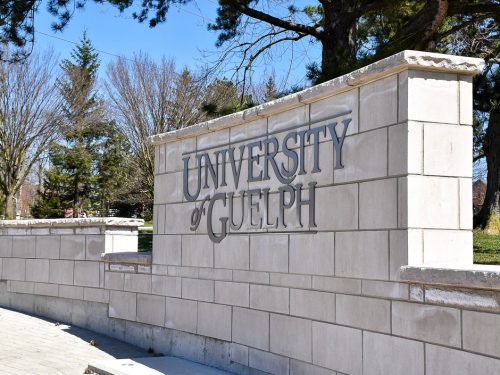 A town hall meeting to discuss the University of Guelph’s preliminary 2019-2020 budget will be held Monday, April 1 in the University Centre, Peter Clark Hall. A budget presentation and discussion will also take place that evening during the regular University Senate meeting.
A town hall meeting to discuss the University of Guelph’s preliminary 2019-2020 budget will be held Monday, April 1 in the University Centre, Peter Clark Hall. A budget presentation and discussion will also take place that evening during the regular University Senate meeting.
Charlotte Yates, provost and vice-president (academic), will discuss the preliminary budget and current fiscal outlook at both gatherings. She will solicit feedback and suggestions for generating revenue and reducing costs. The community forum will also enable faculty, staff and students to ask questions.
“There is still much uncertainty about the University’s operating budget for 2019-2020,” said Yates, adding that U of G is still awaiting details about provincial policies on tuition, student fees and student assistance unveiled in January.
As a result, the University will delay presenting its operating budget to the Board of Governors until May. “We are hoping that the additional month will bring more clarity and confirmation of estimations of revenues and expenditures.”
Under the new tuition framework, colleges and universities are required to reduce tuition fee levels by 10 per cent in 2019-20 from those of 2018-2019. Under a tuition freeze, fees for 2020-21 must remain at 2019-20 levels. International tuition is not affected by the freeze.
A new ancillary fee classification framework establishes which types of ancillary fees may be deemed mandatory and which types may be charged only if students have the option of “opting out.”
Changes to the Ontario Student Assistance Program include elimination of the non-needs-based portion of the Ontario Student Grant and reduction of the associated threshold. Changes to the student loan program include new loan collection tools.
While details are forthcoming, Yates said the University has made estimates and is developing budget plans and strategies as part of integrated, University-wide planning efforts.
The tuition reduction will reduce domestic tuition revenue by an estimated $17.7 million at the Guelph campus and by $3.4 million at Guelph-Humber. Ridgetown Campus will remain unaffected as the majority of its students are diploma students.
However, Yates said that she anticipates that revenues from other sources such as international tuition fees and changes to pension payments and other factors will likely reduce that estimated deficit significantly. She anticipates that reserves will be used to cover the shortfall for the coming budget year.
“But we will need to be proactive about longer-term solutions,” Yates said. “We will be engaging in serious discussions of how to eliminate the structural deficit through a combination of actions that include increasing revenues and reducing costs and cost increases.”
U of G is committed to remaining a top comprehensive university that is both learner-centered and research-intensive, Yates said. This involves recruiting the best faculty, students and staff and continued dedication to student success, which includes ongoing support for student financial aid and experiential learning opportunities.
Yates added that U of G is not alone: “All Ontario universities are facing similar budgetary challenges.”